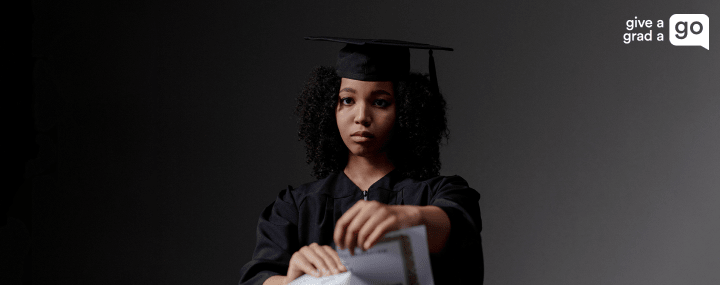Just deciding what job you actually want to do can be one of the biggest hurdles of the graduate job hunt.
With no clear direction, it’s easy to find yourself endlessly trawling through job sites without really getting anywhere.
While using your degree to help steer you towards the right graduate job is a great place to start, it’s not the only way to figure out what your ideal job might be.
Your interests and personality also play a big part in figuring out what graduate job might suit you best.
With this in mind, here are three more ways of figuring out your ideal job match:
By what others notice
Whether you realise it or not, there are things about you that stand out very obviously to others.
So the first step is finding out what those things are.
Ask your friends, when is it you seem most in your element?
Perhaps it’s when you’re hosting a party, planning a group holiday or wracking your brain in a pub quiz.
Already you’ll be able to see how these things might transfer into a job, e.g. an account executive, a project coordinator or an analyst.
The next step is to dust off your old school reports, assessment feedback and any job reviews you’ve received – are there any patterns?
Once you have a better idea of your unique traits and talents, you’ll be better able to decide the type of roles that match your character.
Pay close attention to where these traits are highlighted in the job description.
By what you enjoy
Are you Britain’s next big baker?
An amateur travel photographer?
Or even a gaming enthusiast?
These can serve as great ways ‘in’ to a company.
There are two ways to do this:
1) Does it match the company direction?
You should be aiming to get a completely rounded understanding of a company from your employer research – what is their vision, who are some of their newest clients, and how is their sector changing?
With this, you’ll be able to better highlight why they should hire you and why your skills and interests make you the best person for the job.
E.g. If they’ve just landed a new client that specialises in luxury holidays, a project coordinator with an interest in travel photography would be an ideal new addition to the team.
2) Does it match the interests of particular employers?
Your research should include getting clued up on specific employees within the company – it’s usually easier with senior management.
Have they been interviewed recently?
Did they give a presentation – what did they speak on?
Then all that’s left is to highlight this common ground in an application or at an interview.
Have a think about what you would answer in an interview if the employer were to ask “why do you want to work for us?”
By your personality
Taking a ‘personality test’ can be a great starting point to figuring out both the type of job and the type of working environment that might suit you best.
The Meyer-Briggs personality test is the most common – a series of questions which will decide which one of 16 personality types you have, based on four categories.
It’ll also give you prompts as to what careers would suit your ‘type’ best.
For example, extroverts often prefer open plan and busy working environments, with the chance to interact with lots of people – this could translate well into a job like business development.
Whereas an introvert might prefer to work in smaller team structures, so might like to kick-start their career as part of an SME.
If you are still unsure, why not take this career test for graduates!
Looking for more advice? Read more on our graduate jobs blog – or get cracking with your job hunt on our graduate jobs UK board.







